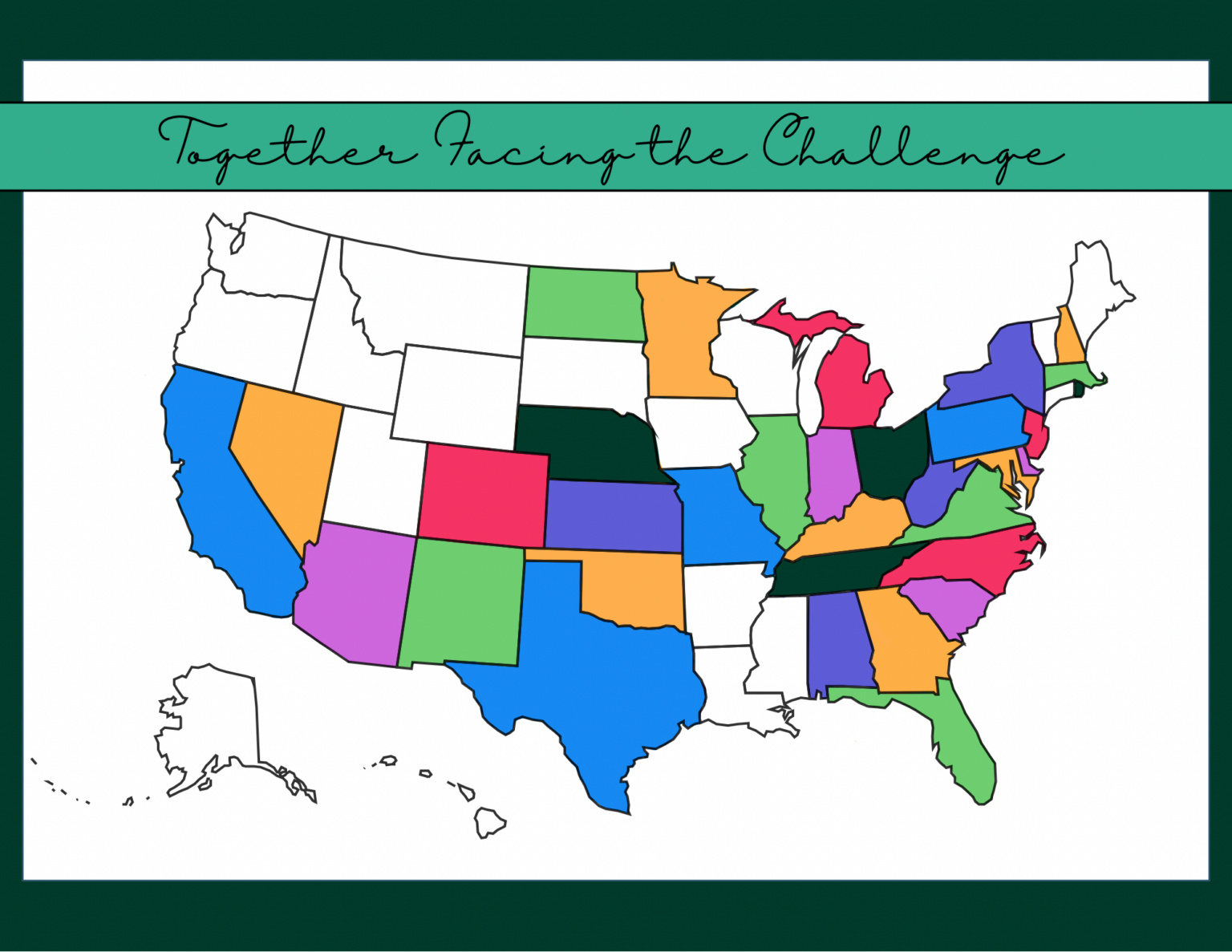Explore our evidence-based designations:
What it is
A Train-the-Trainer Approach to Supporting Youth in Care
Together Facing the Challenge is trauma-informed, evidence-based training and coaching model for caregivers & agency staff.
Beginning with the importance of relationship building, TFTC helps caregivers utilize interventions to help shape new behaviors while supporting youth on their healing journey. Based on research as well as real-world practice, TFTC teaches positive parenting skills while focusing on issues of individual identity, transition to adulthood, family communication, and self-care.
The Together Facing the Challenge treatment model can support both new and existing agencies, and while the program is rooted in Treatment Foster Care, it’s applicable to those serving youth in foster care, residential treatment, and outpatient services — and these practices are just as effective at strengthening forever families.
Agencies Using TFTC report:
- Improved outcome data
- Increased youth permanency
- Increased foster parent recruiting and retention
- Increased staff satisfaction

How it works
Enhancing and Improving Core Skills
The TFTC model is effective, approachable, and importantly, feasible for foster care programs with finite resources.
Our curriculum focuses on in-home intervention elements and the two keys to implementing them effectively: building skills and honing tactics in agency staff, and empowering those staff members to supervise and coach caregivers to use these tools.
We don’t ask agencies to unlearn effective practices. TFTC enhances what caring professionals already do well by expanding their expertise with evidence-informed approaches.
Ongoing coaching ensures that the transfer of learning and application of skills is aligned with the model, child-focused, and appropriate for the youth and family being served.
WHAT YOU LEARN
Practical Training, Coaching, and Partnership
Together Facing the Challenge is a two-part training model.

Part 1
Participating in a three-day, seven-session training event focused on key behavioral theories and core TFTC practices.

Part 2
Ongoing consultation with your OFI agency coach to address the specific needs of your youth, utilizing TFTC principles.
Training Session Topics
Impactful Relationships
A trauma-informed approach to building connections
The Power of Language
How words can impact a youth's success
Preventing, Escaping, and Rebuilding
A deep dive into power struggles
Impactful Behavior Management
A trauma-informed approach to effective consequences
Embracing Diversity
An individual approach to culture and identity
Journey to Interdependence
Building skills to last a lifetime
Tools for Family Success
A deep dive into family connection and self-care
WHY IT'S TRUSTED
The Roots, Reach, and Impact of TFTC
Together Facing the Challenge has roots in North Carolina, where initial research began. The program was developed as a collaborative effort between Maureen Murray, Betsy Farmer, PhD, and Barbara J. Burns, PhD., based on nine years of treatment foster care (TFC) studies.
Once implemented, further research affirmed TFTC’s efficacy.
In a randomized clinical trial funded by the National Institute of Mental Health, TFTC training showed significant improvement in a range of youth-level outcomes.1 Additional research showed that an enhanced curriculum and training protocols can provide even more substantial improvements in practice and sustainability.
The TFTC program earned a scientific rating of “2” (supported by research evidence) and a rating of “High” for child welfare relevancy by the California Evidence-Based Clearinghouse on Child Welfare.
TFTC was also awarded “Supported Status” with the Title IV-E Prevention Services Clearinghouse for mental health programs and services as well as in-home parent skill based programs and services.
Now a highly regarded model in treatment foster care, TFTC continues to earn support from The Duke Endowment for its work across 30 states, serving thousands of children and families at more than 130 locations.
1: Farmer, et al., 2010
Get Certified, Become a Partner
The TFTC curriculum provides an enhanced approach to meeting the needs of youth in care that’s designed to be cost- and time-effective for a broad range of foster care agencies. Join us and become a trained, certified partner.




